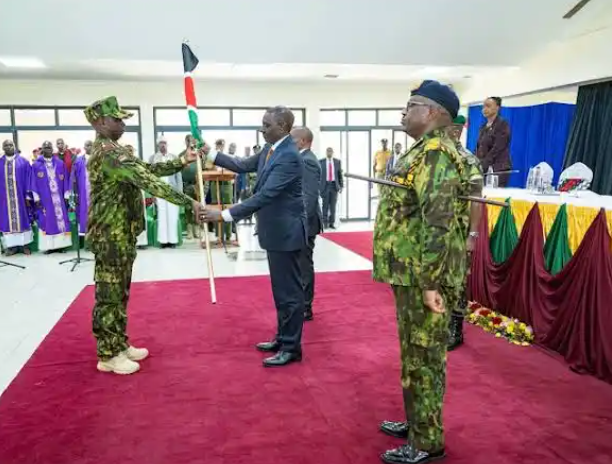An unknown number of Kenyan police personnel have opted not to participate in the planned peacekeeping operation in Haiti.
This decision follows the recent agreement between President William Ruto of Kenya and Prime Minister Ariel Henry of Haiti to send 1,000 Kenyan police officers to assist in combating criminal organizations in the troubled Caribbean nation.
The proposal to send Kenyan police to Haiti has faced significant criticism from various quarters.
Concerns have been raised about the mission’s viability and the associated risks involved. Interestingly, a prior court ruling questioned the constitutionality of this deployment.
Despite the judicial intervention, President Ruto proceeded with the plan, underscoring his administration’s commitment to international peacekeeping efforts.
The decision by some Kenyan police officers to decline deployment underscores the inherent challenges in foreign peacekeeping missions.
These operations, aimed at restoring peace and stability in conflict-ridden regions, often grapple with moral, political, and practical dilemmas.
The reluctance of these officers to participate raises questions about the broader feasibility of the peacekeeping initiative in Haiti.
This incident highlights the complexities involved in enforcing peace in a country beset by violence and instability.
It also emphasizes the necessity of garnering broader support for such missions.
The government must address the concerns and reservations of its personnel and the public to ensure the success of the peacekeeping efforts in Haiti.
The Kenyan government’s response to this development will be crucial in determining the future of the mission.
Measures to assure the safety and effectiveness of the peacekeeping force, alongside strategies to bolster morale and support among the officers, will be pivotal.
The administration will need to navigate these challenges carefully to maintain the integrity and purpose of the peacekeeping operation.
This situation brings to light the often overlooked difficulties of international peacekeeping.
The success of such missions depends not only on strategic planning and political will but also on the commitment and cooperation of those on the ground.
As Kenya faces this new challenge, the international community will be watching closely to see how the situation unfolds and what lessons can be learned for future peacekeeping endeavors.





















Add Comment